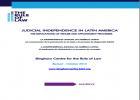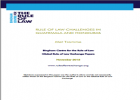About the Speakers
Helena Alviar
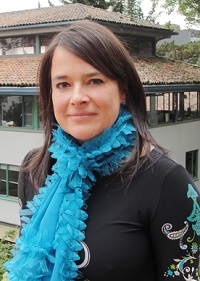
Helena Alviar studied law at Universidad de los Andes and has a Masters and Doctorate in Law from Harvard Law School. Currently, she is the Dean and Full Professor of law at Universidad de los Andes in Bogotá - Colombia. Professor Alviar has taught at universities in Costa Rica, Puerto Rico, El Salvador, United States and Italy. She has published extensively in the areas of law and development, feminist theory and constitutional law. Her recent publications include: David Trubek, Helena Alviar García, Diogo R. Coutinho and Alvaro Santos (eds), Law and the New Developmental State: The Brazilian Experience in Latin American Context, Cambridge University Press, 2013; Helena Alviar and Isabel Cristina Jaramillo: Feminismo y Crítica Jurídica: el análisis distributivo como alternativa crítica al legalismo liberal, (Siglo del Hombre Editores y Ediciones Uniandes 2012), "The Unending Quest for Land: The Tale of Broken Constitutional Promises" in the Texas Law Review and "Legal reform, social policy, and gendered redistribution in Colombia: The role of the family" in American University Journal of Gender, Social Policy & the Law.
Gabriel Pérez Barberá
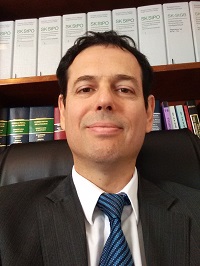
Gabriel Pérez Barberáa was a Judge in the Court of Appeal in the town of Cordoba from 2006-2015, before assuming a new role as Attorney General for Penal and Economic matters in the Federal Court of Appeals in Buenos Aires. Gabriel received his PhD in Law from the Universidad Nacional de Córdoba, where he also teaches. He is also an invited Professor at the Universidad Torcuato Di Tella. Gabriel received several scholarships, through which he pursued his studies in Germany.
Sergio Bermudes
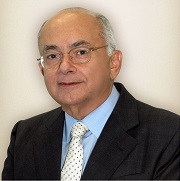
Sergio Bermudes currently holds the position of Professor of Procedural Law at the Law School of the Pontifical Catholic University (SJ) of Rio de Janeiro, and has taught at the Faculdade Brasileira de Ciências Jurídicas of Rio de Janeiro and other universities overseas. Mr Bermudes was part of the team which reformed the Brazilian Code of Civil Procedure in 1985. In addition to acting as a mediator, he has acted both as an arbitrator in Brazil and as a lawyer and expert witness before arbitration tribunals in Brazil and abroad. He was also an attorney for the Supreme Court of the State of Rio de Janeiro. Sergio Bermudes received his Law degree from the Law School of Guanabara (presently, Rio de Janeiro) State University and received his PhD on the history of Roman, Canonic and Portuguese Procedural Law at the Law School of the University of São Paulo. A practicing lawyer, he was admitted to the Rio de Janeiro Bar in 1970 and the São Paulo Bar in 1973. He was a member of the Federal Council of the Brazilian Bar Association for 10 years, and was a Justice of the Electoral Tribunal of the State of Rio de Janeiro for 2 years.
Catalina Botero
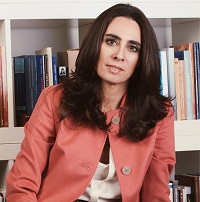
Catalina Botero Marino is a professor of Constitutional Law, and since 2015 has been Associate Justice of the Constitutional Court of Colombia. Currently she is an advisor for entities such as Unesco and the Electoral Tribunal for the Judicial Power of the Federation of México. She is a member of the Academic Council of the Center for Constitutional Studies of the Supreme Court of Justice of the Nation of México and an invited expert of diverse academic projects such as Global Freedom of Expression and Information of the University of Columbia in New York; Latin America Goes Global in the Faculty of International Affairs of the same university and the observatory Global Internet and Jurisdiction Project. She is a founding partner of the Centro de Estudios de Derecho, Justicia y Sociedad (DeJusticia), a member of the Directive Board at the Fundación para la Libertad de Prensa (FLIP) and of the international academic committee of the Centro de Estudios de Libertad de Expresión y Acceso a la Información (CELA) of the University of Palermo in Argentina. From 2008 to 2014 she was Special Rapporteur for Freedom of Expression of the Inter-American Commission on Human Rights (ICHR) of the Organization of American States (OAS).

Twitter: Follow Catalina on Twitter
Dr Kevin Casas-Zamora
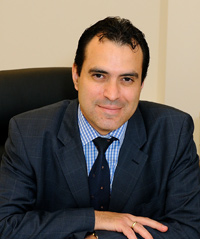
Dr Casas-Zamora is a Senior Fellow and Director of the Peter D. Bell Rule of Law Program at the Inter-American Dialogue, in Washington D.C. Prior to that he was Secretary for Political Affairs at the Organization of American States and Senior Fellow in Foreign Policy at the Brookings Institution. In 2006-2007, he was Second Vice President and Minister of National Planning and Economic Policy of the Republic of Costa Rica. He holds a Law degree from the University of Costa Rica, a MA in Latin American Government and Politics from the University of Essex, and a D.Phil. in Politics from the University of Oxford. He has authored several studies on campaign finance, elections, democratization, citizen security and civil-military relations in Latin America. His doctoral thesis, entitled "Paying for Democracy in Latin America: Political Finance and State Subsidies for Parties in Costa Rica and Uruguay", won the 2004 Jean Blondel PhD Prize of the European Consortium for Political Research (ECPR) and was published in 2005 by the ECPR. Recent publications Include: Kevin Casas-Zamora & Daniel Zovatto, The Cost of Democracy: Essays on Political Finance in the Americas (International IDEA - OAS - Inter-American Dialogue, 2016; Kevin Casas-Zamora, ed., Dangerous Liaisons: Organized Crime and Political Finance in Latin America and beyond (Brookings Institution Press, 2013); Kevin Casas-Zamora, The Besieged Polis: Citizen Insecurity and Democracy in Latin America (Brookings Institution - OAS, 2013). He was selected as Young Global Leader by the World Economic Forum in 2007. In 2013, he became a member of the Bretton Woods Committee.

Twitter: Follow Kevin on Twitter
Fernando Henrique Cardoso
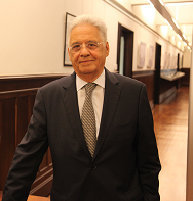
Fernando Henrique Cardoso was President of the Federative Republic of Brazil for two consecutive mandates, (1995 to 1999 and 1999 to 2003). He is also a sociologist and author of a number of books on social change and development in Brazil and Latin America.

Twitter: Follow Fernando Henrique Cardoso on Twitter
Pierpaolo Cruz Bottini
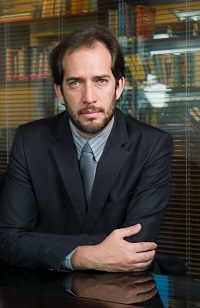
Pierpaolo Cruz Bottini is PhD Professor, Department of Criminal Law, Criminology and Forensic Medicine, Faculty of Law, University of São Paulo. He completed a Masters and a PhD at the same University. He headed the Department of Judicial Reform of the Ministry of Justice (2005-2007) and the Department of Judicial Modernization of the same Department (2003-2005). Pierpaolo has authored books in the area of criminal law including "Money Laundering", (with Gustavo Henrique Badaró, São Paulo, RT, 2012), "Crimes of abstract danger and precautionary principle in risk society ", (2nd edition, São Paulo, RT, 2008).
Pedro Dutra
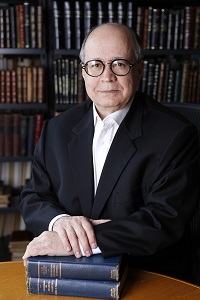
Pedro Dutra is a Senior Partner at Pedro Dutra Advogados, a law-firm he founded in 1988. Previous to this, Mr. Dutra worked as assistant for the Presidency of Banco do Estado do Rio de Janeiro, as an intern in the London offices of Clifford Chance, as an Attorney at Engefer S.A. - Engenharia Ferroviária, and later as Attorney at Indústria Nuclear Brasileira S.A. (INB). Pedro Dutra is a member of the Brazilian Institute of Studies on Competition, Consumer Affairs and International Trade - IBRAC - and has been, for five years, the editor of IBRAC Magazine. He often publishes papers on administrative, competition and regulatory law in various specialized magazines and newspapers in Rio de Janeiro and São Paulo. Mr. Dutra graduated in Law from the State University of Rio de Janeiro.
Tarso Genro
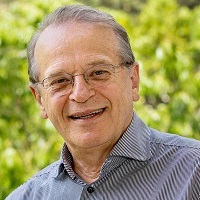
Tarso Genro is the former Minister of Education and Minister of Justice of Brazil (under President Luiz Inácio Lula da Silva). He is also the former Governor of the State of Rio Grande do Sul. Mr. Genro is currently a Professor and has lectured in numerous universities, both in Brazil and overseas. He has published a number of books on Law and Political Theory.

Twitter: Follow Tarso Genro on Twitter
José Gregori
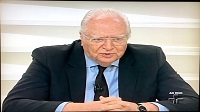
Mr. José Gregori is the former Minister of Justice of Brazil's Federative Republic, a function he exercised between 2000 and 2001, and also headed the Truth and Justice Commission ('Comissão de Justica e Paz') from 1973 to 1982. Other positions in Government include: National Secretary for Human Rights from 1997 to 2000, Chief of Staff to the Ministers of Justice; Economy, Agriculture and Planning; Social Security; and Agrarian Reform. Mr. Gregori also held various positions in Academia and the private sector. He is currently Chair of the Human Rights Commission at the University of São Paulo (USP).
Mario Engler Pinto Junior

Mario Engler Pinto Junior is a Professor at the FGV São Paulo School of Law (FGV Direito SP) and Assistant Dean for the Professional Masters Programme. He teaches on the subjects of Contractual Strategies and Public and Private Sector Deals. Mario received his PhD in Commercial Law from the University of São Paulo Law School. He worked for 30 years as a State Attorney providing legal advice to the São Paulo State Government in financial transactions, capital markets deals and infrastructure projects, including the first successful Brazilian PPP (São Paulo Subway Line 4). Additionally, he is the former Chief Executive Officer of Companhia Paulista de Parcerias - CPP (São Paulo Partnerships Corporation) and a current member of the company Board. He also served for six years as a Director of Companhia de Saneamento Básico do Estado de São Paulo - SABESP (São Paulo Basic Sanitation Corporation). Mario belongs to the Board of Arbiters of BOVESPA Market Arbitration Chamber. His book Empresa estatal: função econômica e dilemas societários has been published in two editions.
Claudia Escobar
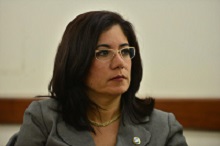
Judge Claudia Escobar served as a Judge in the Court of Appeals of Guatemala. She was re-elected by Congress in 2014, though she resigned shortly after as she became a whistle blower in a case of grand corruption involving the former Vice-President of Guatemala and the former President of the Guatemalan Congress. Claudia is currently a Robert G. James Scholar at Risk Fellow (2015 - 2016) and a Fellow at the Radcliffe Institute for Advanced Studies. During her fellowship, she intends to pursue a research project on how corruption in the judiciary branch is directly linked to the lack of judicial independence, and consequently to the violation of human rights. Judge Escobar obtained her PhD and Masters in Pluralistic Law at the Universidad Autónoma de Barcelona, her law degree at the Universidad Francisco Marroquín in Guatemala and a BA in Political Sciences at Louisiana State University.
Heloisa Estellita
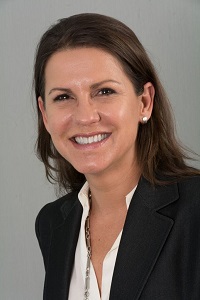
Heloisa is a Professor at Fundação Getulio Vargas' Law School and works primarily with white collar crime matters. She is also the former President of the Amicus Curie Committee of the Brazilian Institute of Criminal Sciences and was a visiting professional at the International Criminal Court, legal officer of the Assembly of the States Parties of the same Court. She was previously a clerk at the Brazilian Supreme Court. Heloisa is currently a post-doctoral researcher at Ludwig-Maximilians University München and Augsburg University, with a scholarship from CAPES and the Alexander von Humboldt Foundation. Heloisa Estellita completed a Doctor of Laws (Criminal Law)at the Universidade de São Paulo and a Masters of Laws at the Universidade Estadual Paulista Júlio de Mesquita Filho - UNESP.
Dr Octavtio Ferraz
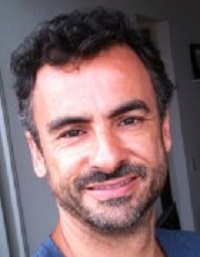
Dr Octavio Ferraz is a Reader in Transnational Law. He holds an LLB and MPhil in Law (University of São Paulo), an MA in Medical Ethics & Law (King's College London, prize Benjamin Geijsen) and a PhD in Law (University College London). Before joining King's he was a Senior research officer to the UN special rapporteur for the right to health, Professor Paul Hunt, at the University of Essex, and then moved to Warwick Law School, where he was an Assistant and then an Associate Professor for 8 years. Before moving to academia, he practiced law in São Paulo, Brazil, mostly in the fields of corporate public law and medical law for over ten years. He is still a member of the Brazilian Bar and contributes regularly to the Brazilian press.
Rodrigo de Grandis
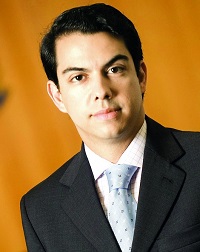
Rodrigo De Grandis has been a Public Prosecutor within the Public Ministry (Ministério Público Federal) since 2004. He is also Professor of Law at the FGV Law School in São Paulo and at the Escola Superior do Ministério Público da União (ESMPU). He received his Bachelors from the Mackenzie Presbyterian University, his Masters and PhD in Penal Law from the Faculty of Law at the University of São Paulo, and a post-graduate diploma at the University of Salamanca in Spain
Marcello Hallake
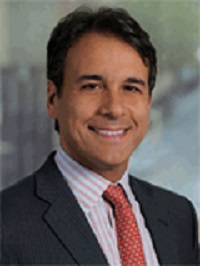
Marcello is a Partner at Jones Day. He focuses his practice on advising U.S., European, and Asian companies, financial institutions, and investment funds in cross-border mergers and acquisitions, joint ventures, privatizations, private equity, and other financing transactions, particularly in the area of projects, in Latin America and around the globe as well as counseling Brazilian and Latin American companies in cross-border transactions. He also has extensive transactional experience advising companies in the energy, infrastructure, telecommunications, media, and technology sectors, including in distressed M&A and in connection with FCPA and compliance matters.
Sir Jeffrey Jowell, KCMG QC
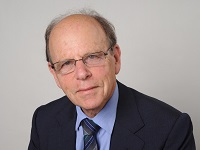
Professor Sir Jeffrey Jowell KCMG QC is the Founding Director of the Bingham Centre for the Rule of Law, which launched in December 2010. Jeffrey is a practising lawyer at Blackstone Chambers. He is Emeritus Professor of Public Law at University College London (where he was twice Dean of the Law Faculty and a Vice Provost). He was knighted (KCMG) in the Queen's Honours List 2011 "for services to human rights, democracy and the rule of law". One of the UK's leading public law scholars, Jeffrey has authored numerous publications in the area of public law, including with Lord Woolf and others, de Smith's Judicial Review. He has honorary degrees from the Universities of Cape Town, Ritsumeikan, UCL, Athens and Paris 2.
Joe Leahy
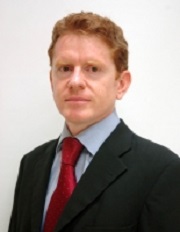
Joe Leahy is Brazil's Bureau Chief for the Financial Times, based in São Paulo. Previously, he served as the FT's Mumbai's bureau chief, as well as Asia companies' editor and Hong Kong correspondent. Before joining the Financial Times in 2000, Leahy was the Jakarta bureau chief for AFX and also worked for the South China Morning Post as a subeditor and then as Indonesia correspondent. In 2009, he won the Journalist of the Year award, the most prestigious prize of the Society of Publishers in Asia, for excellence in his reporting of Indian business and politics. He also won the 2009 Indian Express award for Best Foreign Correspondent covering South Asia. While in Hong Kong in 2006, he jointly won the Sopa award for Excellence in Business Reporting for his coverage of Chinese Oil Company CNOOC's bid for Unocal of the U.S. In 2011, he jointly won an honourable mention in Sopa's multimedia category for a Facebook, video, and print project on Mumbai's migrants, Living the Dream. Leahy is a graduate of the Royal Melbourne Institute of Technology where he received a Bachelors of Arts degree in journalism.
Ronaldo Porto Macedo
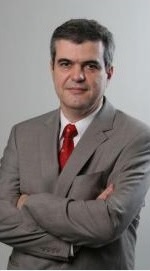
Ronaldo Porto Macedo Jr is Senior Assistant to the Attorney General´s Office of the State of São Paulo. He is currently Professor of Political Philosophy and Legal Theory at São Paulo Law School of Fundação Getulio Vargas (DIREITO GV), Professor of Legal Philosophy and Legal Theory at FDUSP, and State Prosecutor in São Paulo. Previous to this, he was a Visiting Scholar at Harvard Law School, a Visiting Researcher at Yale Law School, and a Post-Doctorate Fellow at King's College School of Law. Moreover, he was also Professor at the Center for Transnational Legal Studies in London (2008-2009), "Kwa Geok Choo Distinguished Visitor" at the Faculty of Law of the National University of Singapore (NUS) and Comissioner at the Brazilian Administrative Counsel of Economic Defense (CADE). He currently teaches Legal Theory, Ethics, Law and Development and Philosophy of Law. Ronaldo holds a PhD in Philosophy and Legal Theory (University of Sào Paulo Law School - FDUSP, 1997), a Masters of Philosophy (University of São Paulo - USP, 1993), and a Bachelors degree in Law (1985) and Social Sciences (1987) from USP.
Dr Lawrence McNamara
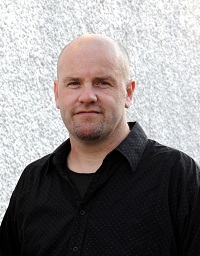
Dr Lawrence McNamara is Deputy Director and Senior Research Fellow at the Bingham Centre for the Rule of Law. He works on a wide range of rule of issues, icnluding judicial review and legal aid, access to justice, accountability of government, and rule of law education. Lawrence's research interests lie primarily in the legal regulation of speech, especially as it relates to the media, and he has undertaken extensive research on issues surround transparency, accountability and open justice in national security issues. Prior to joining the Bingham Centre Lawrence was an academic in universities in the UK and Australia.
Gilmar Mendes
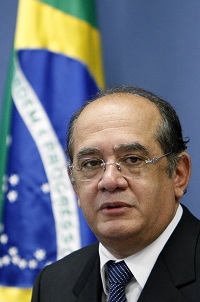
Gilmar Mendes has been a member of the Supremo Tribunal Federal, Brazil's Highest Court, since 2002. He presided over the STF from 2008 to 2010 and over the Conselho Nacional de Justiça (CNJ), which overlooks the work of the Judiciary. He is also part of the Tribunal Superior Eleitoral, which is in charge of organizing elections in Brazil. He teaches Constitutional Law at the University of Brasília Law School and Instituto Brasiliense de Direito Público (IDP). Mr Mendes received his PhD in Law at University of Münster (Germany).
Carlos D. Mesa
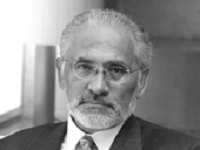
Carlos D. Mesa is a historian, politician, and journalist. He was the President of Bolivia between 2003 and 2005. Elected in 2002 as Vice President and President of the National Congress, he became the Constitutional President of Bolivia in 2003. His government amended the Constitution, passed referenda on hydrocarbons, the direct election of mayors, and a constituent assembly. His government also overcame a high fiscal deficit, revitalized the economy, doubled exports, and instituted human rights as state policy. Prior to that, Mesa was Founder and Director of Cinemateca Boliviana (1976). Since 1979 Carlos has been a press, radio and television journalist; he served as Deputy Director of the newspaper Ultima Hora and director of three channels of TV: America TV, Telesistema Boliviano and ATB. He is President of the Fundación Comunidad, which works to strengthen democratic institutions and human rights. He studied Literature at the Universidad Complutense de Madrid and the Universidad Mayor de San Andrés de La Paz.

Twitter: Follow Caros D Mesa on Twitter
Luciana de Oliveira Ramos

Luciana is a Professor at the Global Law Programme at FGV São Paulo School of Law , works with the Graduate Programme and . She is also a researcher at the Justice and Constitution Center and the Center for Law and Gender Studies at the FGV São Paulo School of Law. She is a member of the research project entitled 'Confidence in Justice Index and the Perceptions on Compliance with Law Index'. Luciana is a visiting scholar at Rutgers University (US). Luciana received her PhD in Constitutional Law from the University of São Paulo (USP) and her Masters degree in Political Science from the Faculty of Philosophy, Letters and Human Sciences from USP. Luciana is also Professor at the Sociedade Brasileira de Direito Público (SBDP).
Luis Riesgo

Luis is Partner-in-Charge (Jones Day) of the Latin America/Miami region, overseeing the São Paulo, Mexico City, and Miami offices, and the practices in the region. He is also Partner-in-Charge of the São Paulo Office. Luis Riesgo's practice focuses primarily on cross-border mergers and acquisitions. His experience extends to the creation of joint ventures, strategic alliances, significant commercial and industrial agreements, and strategic outsourcing projects in Latin America and Spain. His transactional practice spans a range of industries, including aerospace, automotive, energy and renewable energy, infrastructure, internet media, and telecommunications.
Julio Ríos-Figueroa
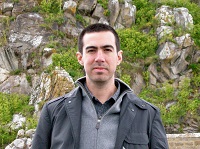
Julio Ríos-Figueroa is an Associate Professor of Political Science at CIDE, in Mexico City. He received his Ph.D. in Politics from New York University (NYU). He is author of the book Constitutional Courts as Mediators Armed Conflict, Civil-Military Relations, and the Rule of Law in Latin America as well as co-editor (alongside Gretchen Helmke) of the volume 'Courts in Latin America' both of which were published by Cambridge University Press. His research on comparative institutions, constitutionalism, law and courts, and Latin American politics has also been published in journals such as Comparative Political Studies, Journal of Law, Economics & Organization, and Latin American Politics & Society. Professor Ríos-Figueroa has been a Hauser Research Scholar at the NYU School of Law, a Visiting Professor at the Juan March Institute in Madrid, and an O'Gorman Fellow at Columbia University. He is the current editor of the journal Política y Gobierno.(END-LINK).
Eric Snyder
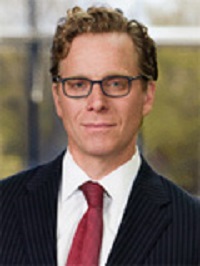
Eric Snyder is an experienced trial lawyer and investigator who has handled numerous high-profile cases. He represents individuals and entities, largely based in Brazil, and focuses his practice on the representation of companies and individuals in U.S. government investigations concerning a wide range of allegations including securities, tax, commodities, and futures fraud; insider trading; money laundering; commercial bribery; corruption; economic espionage; antitrust violations; and Foreign Corrupt Practice Act (FCPA) violations. Prior to joining Jones Day, Eric served as a prosecutor for 16 years, including eight years as an Assistant US Attorney (AUSA) in the Southern District of New York. He also recently served as Senior Counsel at the U.S. Department of State, where he led the State Department's response to the congressional investigation into the attack on an embassy facility in Benghazi, Libya. While serving as an AUSA in the Southern District of New York, Eric conducted eight federal criminal jury trials and indicted the 50 top leaders of the Revolutionary Armed Forces of Colombia (FARC), a designated Foreign Terrorist Organization.
Paulo Sotero
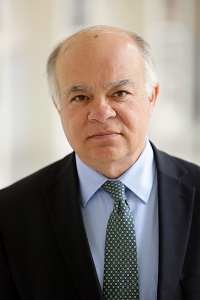
Paulo Sotero is the Director of the Brazil Institute of the Woodrow Wilson International Center for Scholars. An award winning journalist, from 1989 to 2006 he was the Washington Correspondent for Estado de S.Paulo, a leading Brazilian daily newspaper. Sotero began his career at Veja in the late 1960s and worked for the magazine in São Paulo, Recife, Brasília, and Paris, until he was named its correspondent in Portugal after the democratic revolution of April 25, 1974. Sotero has been in Washington, D.C., since 1980, where he has been a Correspondent for Istoé weekly magazine and the financial newspaper Gazeta Mecantil. A native of the state of São Paulo, Sotero holds a Bachelor's degree in History from the Catholic University of Pernambuco, and a Masters in Journalism and Public Affairs from the American University, in Washington, D.C. He has been an adjunct Lecturer at the Edmund A. Walsh School of Foreign Service, Georgetown University, and the Elliott School of International Affairs, George Washington University.

Twitter: Follow Paulo on Twitter
Dr Jan van Zyl Smit
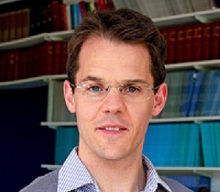
Dr Jan van Zyl Smit is an Associate Research Fellow at the Bingham Centre for the Rule of Law. Much of his work at the Centre has focused on the use of legal frameworks and processes to foster the independence of the judiciary. He is the author of The Appointment, Tenure and Removal of Judges under Commonwealth Principles: A Compendium and Analysis of Best Practice and was involved in the development of the Cape Town Principles on the Role of Independent Commissions in the Selection and Appointment of Judges. Jan is particularly interested in judicial reform in the context of political transitions. He has worked for the Judges and Magistrates Vetting Board in Kenya as a consultant and has advised the Truth and Dignity Commission in Tunisia on vetting and institutional reform. He has participated in consultations and workshops organised by a range of organisations including the Commonwealth Secretariat. Jan holds a DPhil in Law from the University of Oxford, and has published on the UK Human Rights Act 1998 and its impact on the interpretation of legislation. Prior to joining the Bingham Centre, Jan held academic positions.
Beto Vasconcelos
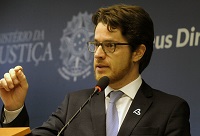
Beto Ferreira Martins Vasconcelos has, since 2015, been National Secretary of Justice in Brazil's Ministry of Justice. Mr. Vasconcelos was previously a Visiting Fellow at the University of Columbia in New York. He was also lawyer in São Paulo (1999-2003), and Associate Secretary within the Information and Technology Department ('Secretaria de Política de Informática e Tecnologia') in the Ministry of Science and Technology (2003-2004). Mr. Vasconcelos was also Advisor to the Minister of State for Justice (2004-2005), Undersecretary General for Judicial matters at the Presidential Chief of Staff Office ('Casa Civil') (2007-2010), Secretary General of the Presidential Chief of Staff Office (2011-2013), and finally Chief of Staff to the President (2014-2015). Mr. Vasconcelos holds a Bachelors in Law from USP and post-graduate degrees from USP and UFSC.
Oscar Vilhena Viera
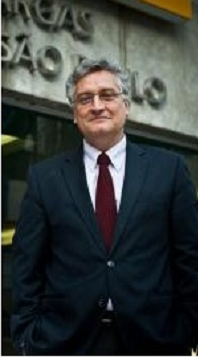
Oscar Vilhena Vieira is the Dean at the São Paulo Law School of Fundação Getulio Vargas (DIREITO SP). Oscar received his PhD and M.A. in political science from the University of Sao Paulo; a LL.M. from Columbia University in New York; a B.A. in Law from the Catholic University of Sao Paulo. He also carried out his post-doctoral studies at the Centre for Brazilian Studies (Oxford University). Oscar teaches Constitutional Law, Human Rights, and Law and Development. He was legal adviser for the Center for the Studies of Violence (University of Sao Paulo, 1990-1996) and executive secretary of the Teotonio Vilela Commission for Human Rights (1989-1991). He served as a State Attorney for Sao Paulo (1993-2003) and asEexecutive Secretary of the United Nations Latin American Institute in Brazil (1997-2002). In 2000, he founded and directed Conectas Human Rights and the Pro Bono Institute. He has written several books and academic articles on constitutional law, human rights and law and development. Oscar is a member of several civil society organisations and sits on advisory boards of several academic programmes, including the Open Society Initiatives - Human Rights Board, the Pro Bono Institute, ANDI (National Agency for the Rights of Children), and the Law School´s Global League. Since 2004, Oscar Vieira has been a Ashoka Global Fellow and Avina Leader. Oscar Vieira has also acted as a pro bono lawyer in several human rights cases at the Brazilian Supreme Court.
Jessica Walsh
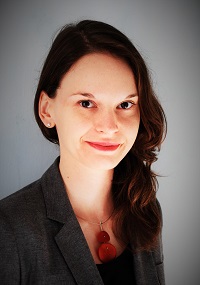
Jessica is a Solicitor of the Senior Courts of England and Wales, having worked at both Davies Arnold Cooper LLP (now DAC Beachcroft LLP) in London and Balaguer, Morera & Asociados (now Balaguer, Morera & García del Río) in Barcelona. In practice, she specialises in international commercial dispute resolution, with a focus on arbitration proceedings. In 2012, she was awarded a doctoral studentship at the University of Surrey to conduct research on judicial disciplinary procedures in Argentina. Her research has involved in-depth interviews with various stakeholders in Argentina, including judges who had been accused of corruption; members of judicial councils, impeachment tribunals, and legislative impeachment committees; and lawyers and members of NGOs who had filed complaints against judges. In addition to her research, Jessica also lectures in law at the University of Surrey. She holds an LLB in European Law from Warwick University and a Certificat Européen d'Études Juridiques Intégrées awarded jointly by Warwick University, the Universität des Saarlandes, and the Université de Lille II. She is fluent in Spanish, French, and German.

Twitter: Follow Jessica on Twitter
Blog

Brazil Must Fight Corruption But Preserve the Rule of Law
This blog investigates the tension between fighting corruption and respecting the rule of law, taking Brazil as an example. ...


